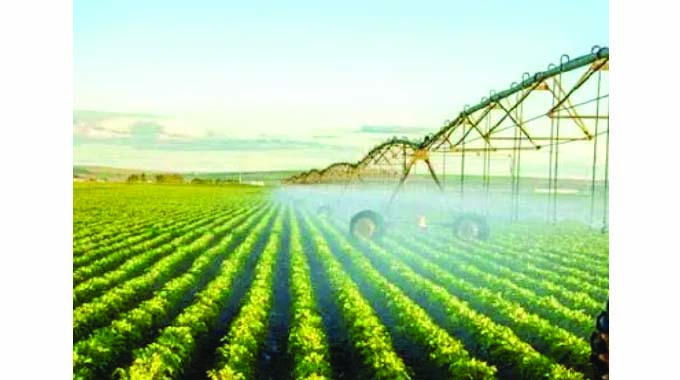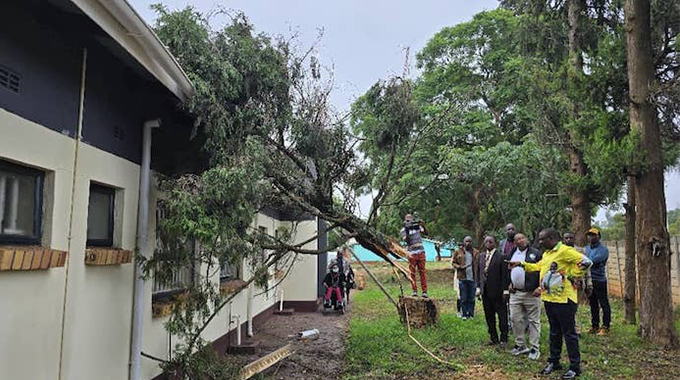Pollards Irrigation Scheme: Game changer for Matabeleland North

Sikhumbuzo Moyo, [email protected]
POLLARDS Irrigation Scheme in the drought-prone Bubi District, Matabeleland North has proved to be a game changer for local communities as it has transformed their lives through improved food security, employment, and enhanced income generation.
The irrigation scheme, which is located near Inyathi Business Centre, is a low-hanging fruit that has the potential to transform the mining area into a greenbelt and improve the local peoples’ livelihoods if fully exploited.
Bubi is a semi-arid rural area with mining and farming as its major economic activities and with support from the irrigation scheme the area can be transformed into a greenbelt and exporter of farm produce to other districts.
The 45-hectare irrigation scheme became fully operational in 2015, but only two-thirds of the land has been utilised over the years because of water challenges. Pollards Irrigation Scheme is home to 102 farmers, mostly elderly women and widows, a majority of them from Ward 11.
Cropping activities at the scheme started in 2015 with members cropping 12 hectares of maize each.
It draws water from the Pollards Dam, which was built by Government in 2000 and has a capacity of 3,2 million cubic metres of water.
The secretary of the irrigation scheme, Ms Auntillah Ncube said the farming project has brought a glimpse of hope and prospects of improving food security and generating revenue for local households.

Accelerated Irrigation Rehabilitation and Development Plan
She, however, said lately they were left counting losses after eleven hectares of maize were affected by frostbite, a few weeks before maturity.
Each farmer was expecting to realise at least US$350 from selling the green maize.
The maize field was planted on block A and following the natural phenomenon, they have now switched to block B and planted another crop which has since started germinating.
On another block, they planted onions and 10 000 heads of cabbages. However, wild animals such as kudus, are a threat to the crop as they constantly stray into the field.
Ms Ncube said the destruction of their crop badly affected them as they were looking forward to generating money.
“Seeing all this dry maize reed makes my heart bleed because we lost the entire crop which was at the maturity stage.
“As farmers, we depended on this irrigation scheme, which is why we have already planted another crop which we expect to harvest late next month,” she said.
“Despite the frost setback, we are excited about the scheme as we have managed to earn a decent living from income generated from the sale of our farm produce.”
Ms Ncube said their intention is to plant throughout the year for maximum utilisation of the irrigation scheme.
She said the scheme is faced with the challenge of drawing water to irrigate their crops from the nearby Pollards Dam as its canal irrigation system had numerous leaks which affected efficient water flow.
“We are using a flood irrigation system to water our crops, drawing water from Pollards Dam, which is located 6km away and it flows via a canal,” she said.
Bubi district has three irrigation schemes, with Pollards being the largest followed by Hauke measuring 40 hectares, and Diglis which covers 20 hectares.
Government has developed 25 irrigation schemes in Matabeleland North with over 6 000 families in the province already reaping the benefits as the Second Republic continues accelerating the national development agenda of leaving no one and no place behind.
Over 1 000 hectares are being utilised for agricultural purposes, boosting food security in the country.
Government has made food security a top priority and is working towards a US$8,2 billion agriculture industry economy, contributing 20 percent of GDP by 2025 underpinned by the country’s National Development Strategy 1 (NDS1) — the driver towards Vision 2030 to make Zimbabwe an upper middle-income economy.

USD
The country has adequate grain in stock for the next two seasons. Government has put in place robust measures encompassing irrigation and agricultural climate-proofing in order to maintain increased production.
In September 2021, President Mnangagwa launched the Arda Vision 2030 accelerator model programme at Bubi-Lupane Irrigation Scheme to stimulate rural industrialisation through agricultural development.
Under the model, each district across the country will have 200 hectares under irrigation with the beneficiaries being locals.
The establishment of village business units (VBUs) under the Presidential Rural Development Programme is also contributing immensely to the betterment of lives of people living in rural areas as some are expected to receive dividends of up to US$3 000 yearly.
The VBUs have transformed the lives of villagers across the country through improved food security, employment and enhanced income generation.
The Government initiated the programme through the Zimbabwe National Water Authority (Zinwa) and Arda. President Mnangagwa launched the programme in Mangwe District, Matabeleland South in 2021.












Comments